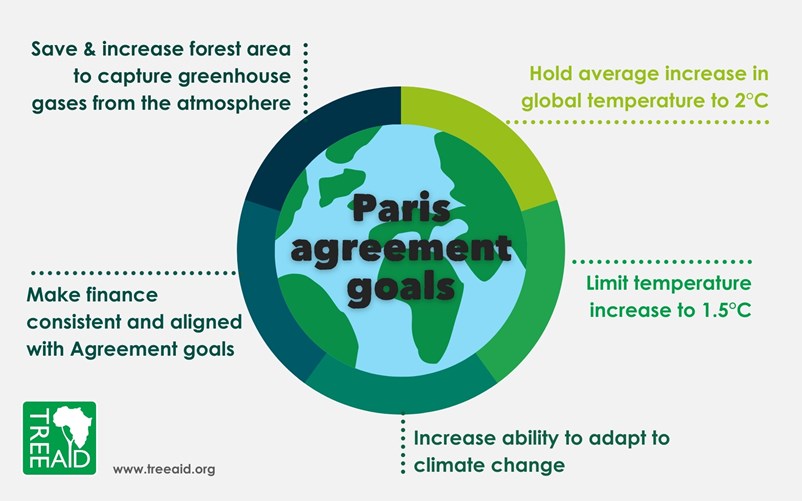Anticipating COP28: Key Themes and Expectations

What is COP28?
The annual United Nations Climate Change Conference is arguably the biggest climate event of the year. COP or Conference of the Parties is where influential politicians, world leaders, representatives, and diplomats align efforts to make climate action happen where influential politicians, world leaders, representatives and diplomats align efforts to make climate action happen. COP28 is particularly monumental because it indicates the end of the first global stockade which is how the progress under the Paris Agreement is measured.
What is the Paris Agreement?
The Paris Agreement is an international treaty that aims to address climate change and its impact. It was adopted at CHOP21 to the UN Framework Convention on Climate Change. The main goal of the Paris Agreement is global climate action. This treaty brought together countries from across the globe to fight the Earth's battle against climate change and commit to limiting global warming. One way that they do this is by requiring Nationally Determined Contributions, or plans submitted by each country outlining their plan to reduce emissions and adapt to climate change.

Photo: Tree Aid
COP27 Recap
One thing we saw at COP27 was western countries defying tradition and relenting to create a "loss and damage" fund for less developed countries that were affected by climate change disasters. This was seen as a sign of progress, because the more developed countries typically failed to take financial liability for more vulnerable countries, defying the Paris Agreements goal for global solidarity.
Another key theme observed at COP27 was the lack of funding provided for climate adaptation, with experts claiming the amount dedicated to adaption efforts being 5 to 10 times below what was needed (Carlin).
Finally, the participants of COP27 maintained their commitment to keep global warming within 1.5 degrees Celsius by 2030. Since the Earth is currently outpacing its warming rate, countries need to commit to mitigating climate change by reduce emissions quickly with new technology and green energy developments.
COP28: What to Expect
With that 1.5-degree Celsius goal at the top of many minds, expect green energy, fossil fuels, and carbon subsidies to be at the forefront of the discussion. Dr. Sultan bin Ahmed Al Jaber, the president delegate of COP28, sent out a letter to all parties outlining the priorities for COP28.
Most highly anticipated for this year's conference is the first Global Stockade of the Paris Agreement. GenHydro Pressure vessel Engineer, Vinod Selvaraju, weighs in: "One of the key aspects of COP 28 is to be pragmatic with the Global StockTake (GST) initiative by uniting nations, institutions and world leaders to curtail carbon emissions without a divided approach. This ensures a nexus and that every entity is well informed to take corrective action based on past events and future predictions".
"Another important factor is the modest approach with the energy transition by limiting the global temperature rises by 1.5° C, which when compared to 1.4° C for 2022, isn’t significantly large."
The Global Stockade, which occurs every five years, is designed to evaluate the progress that the world has made towards climate goals as set in the Paris Agreement. Additionally, the Global Stockage keeps countries updated on progress so they can update their "Nationally Determined Contributions" (NDCs) accordingly. These are plans that countries set to outline their tactics and strategies to fight climate change in their country, and the updates that the Global Stockade provides keeps countries ambitious.
Al Jaber highlighted a key theme of fast tracking the energy transition to green energy sources and slashing the usage of fossil fuels. An overarching theme to the conference is importance of commitment and unity required for this transition, and how each country must play a part. Policies should be comprehensive, and address both the supply and demand for fossil fuels in order to limit global warming to the 1.5 degrees Celsius as outlined in the Paris Agreement. Jabar touches on the additional support that developing countries may need during this transition, and how policies must be equitable due to finance being a key enabler of climate action.
Al Jaber emphasizes the importance of climate finance being affordable, accessible and available for developing countries. If the world stays on track with the Paris Agreement, emerging nations need over 2.4 trillion USD to achieve climate goals by 2030. This goal requires action from all countries, and discussions surrounding the financing at this large of a scale are to be expected.
What COP28 Means for the Energy Industry?
COP28 gives the energy industry the chance to step up and play their part in the fight against climate change. With the overarching themes of unity and commitment in mind, big oil and gas companies have chances to make big impacts by reducing greenhouse gas emissions and investing in green energy technology.
Selvaraju highlights four key efforts to implement a green energy transition by 2023 and their potential results.
-
Tripling renewable energy capacity: Industries will have to invest more in real estate, especially solar and wind. Carbon heavy industries will have to reevaluate and reconsider their existing processes with limitations and caps enforced and/ or switch to equivalent renewable energy production methods. We can also see a potential rise in the cost of carbon-based fuels.
-
Transforming heavy emitting industries: More R&D efforts to scale up carbon offsetting and capture with demand from governing bodies and commissions. Incentives from the government and diversifying workforce to implement the same.
-
Fossil free transport: Auto makers will be stipulated with engine and emission restrictions for each of their carbon-based vehicles. Manufacturing plants will have to adapt to new sustainable requirements which may affect the existing automation processes. More investment needed to improve electric vehicle infrastructure to appeal to the public.
-
Annual investment of USD 2.4 trillion: Reevaluation/ Reallocation of budget to various resources and sectors by governments. Opposition from various parties. R&D to mitigate high-cost renewable processes whilst improving efficiency.
Thanks to increased financial and physical investments in the transition to green energy, GenHydro stands to benefit significantly. GenHydro has a unique advantage due to our innovative reaction-based approach to energy production. Our method is not only environmentally friendly but also has the added benefit of producing valuable byproducts like advanced ceramics and electrical power. Our carbon-free, byproduct producing green hydrogen generation positions GenHydro as the leading choice for sustainable energy in the years to come.
To learn more about our technology capabilities and project pipeline, subscribe to our newsletter below:
